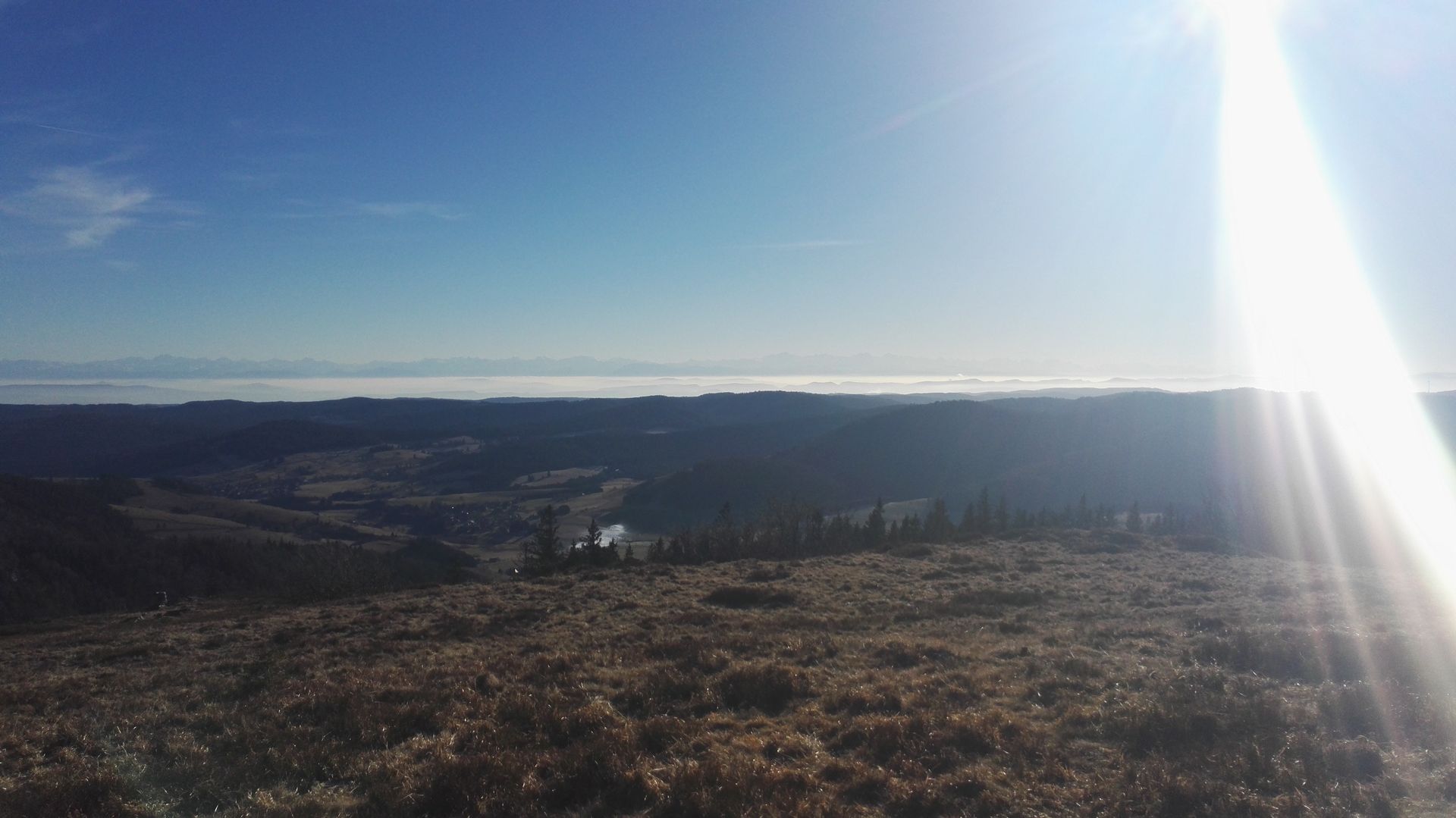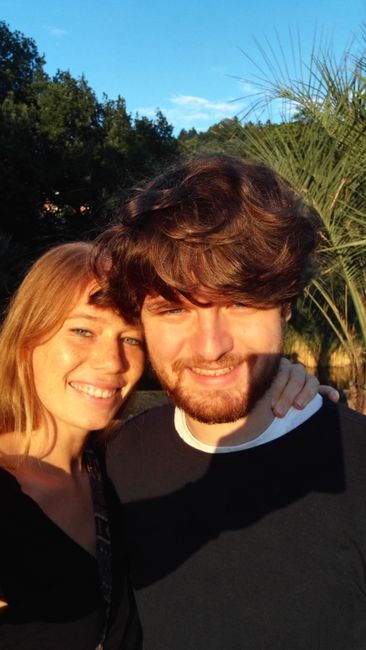American Lifestyle
Atejade: 26.06.2019
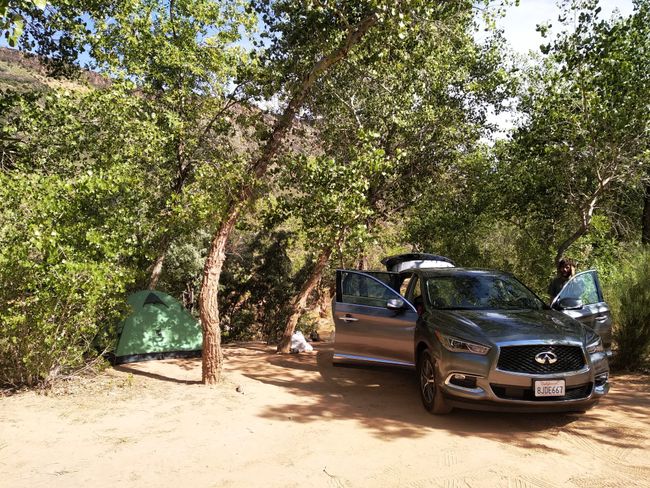
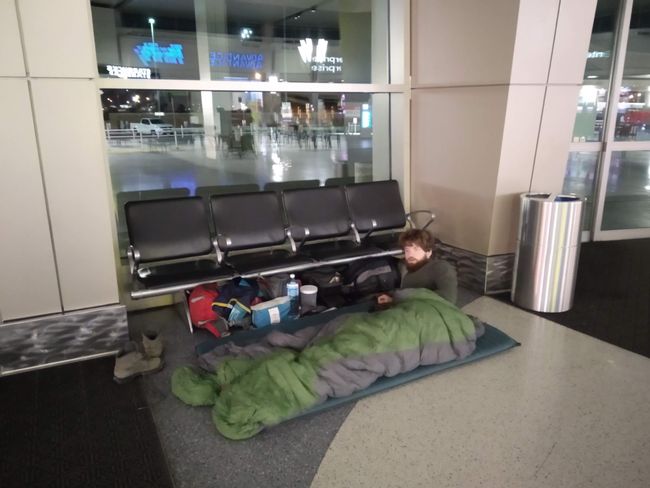
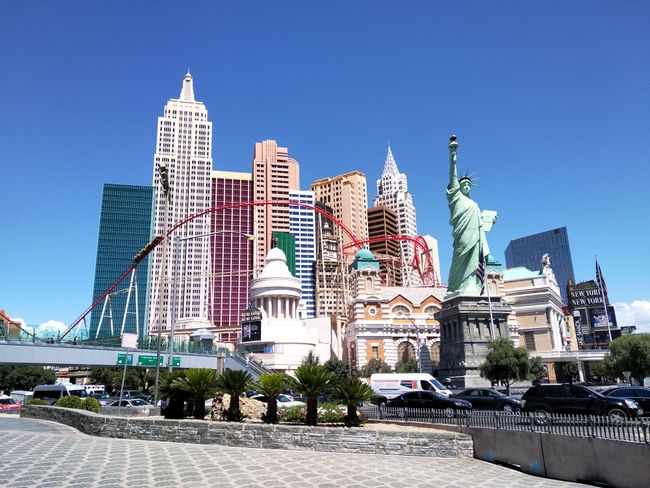
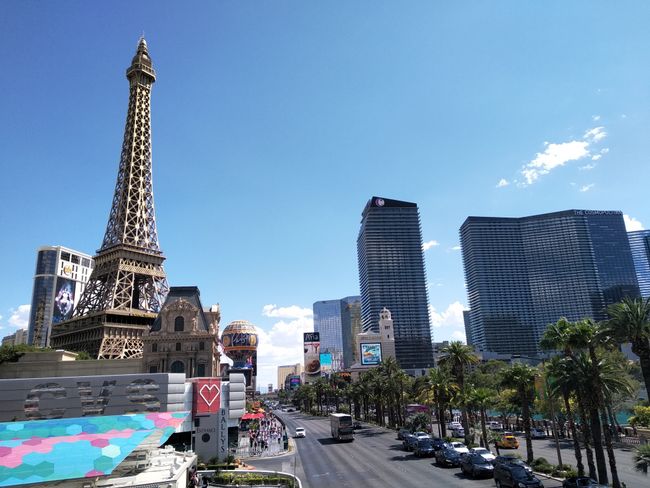
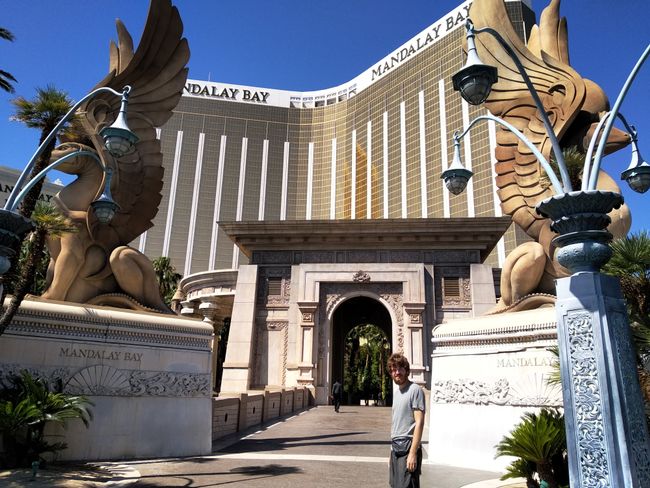
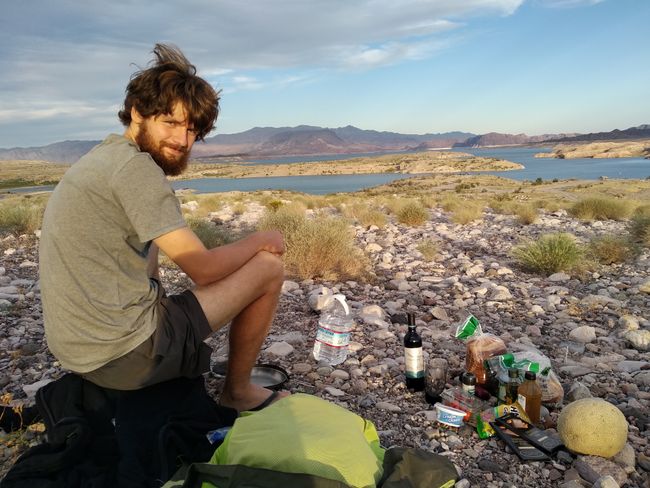
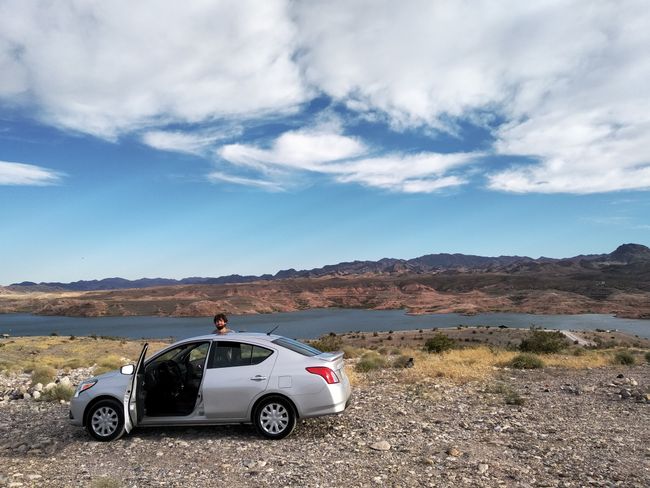
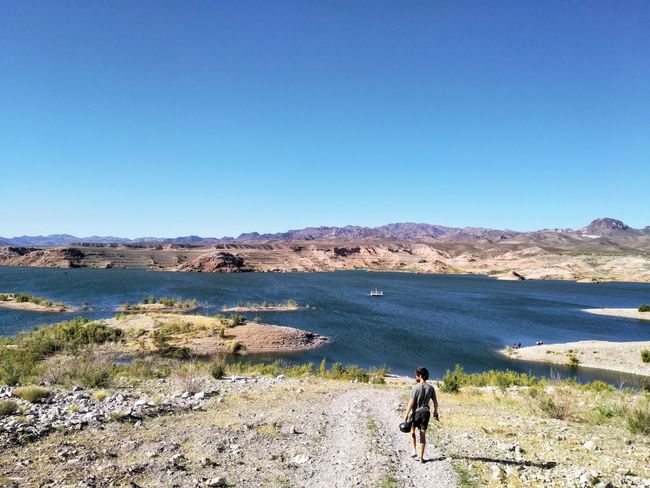
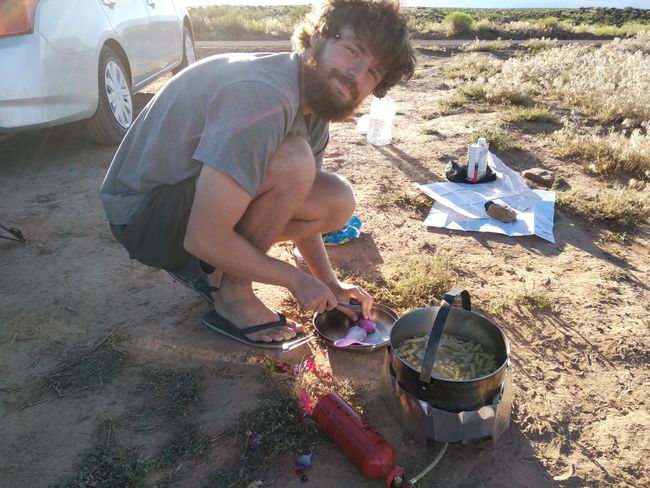
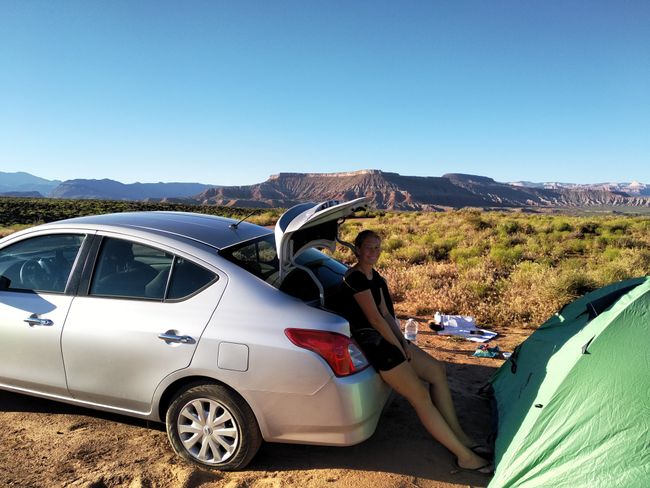
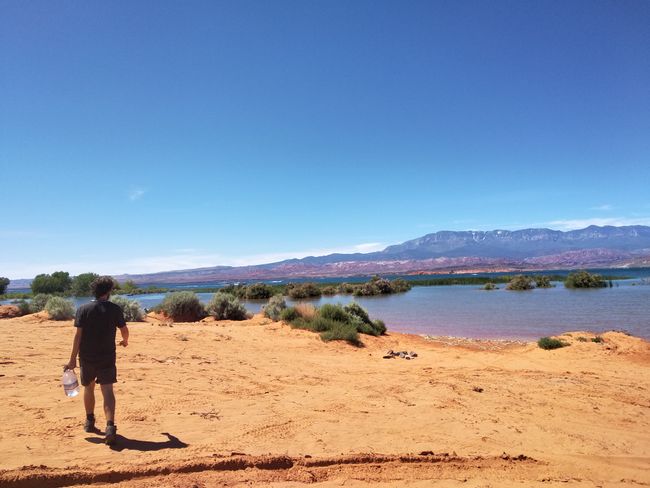
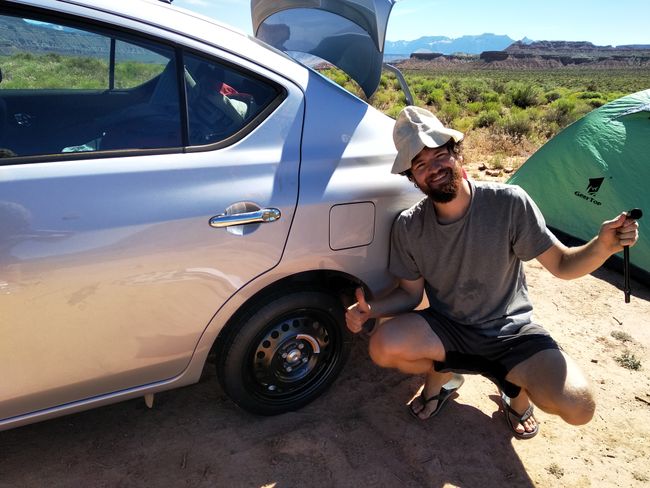
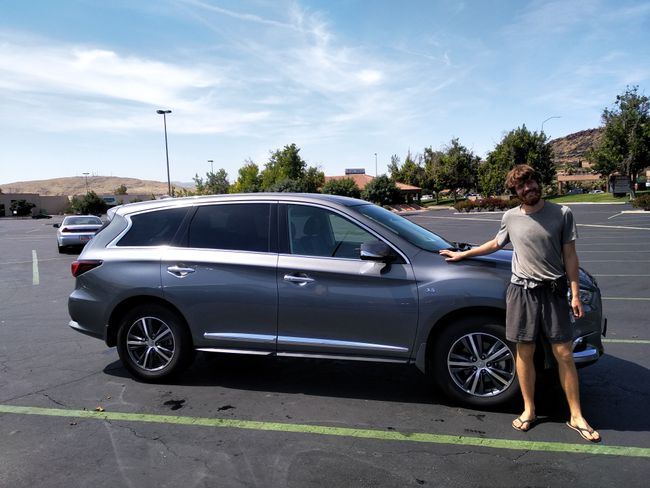
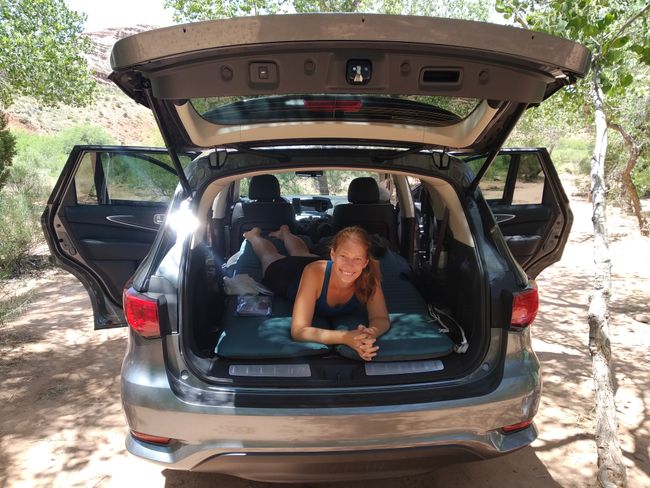
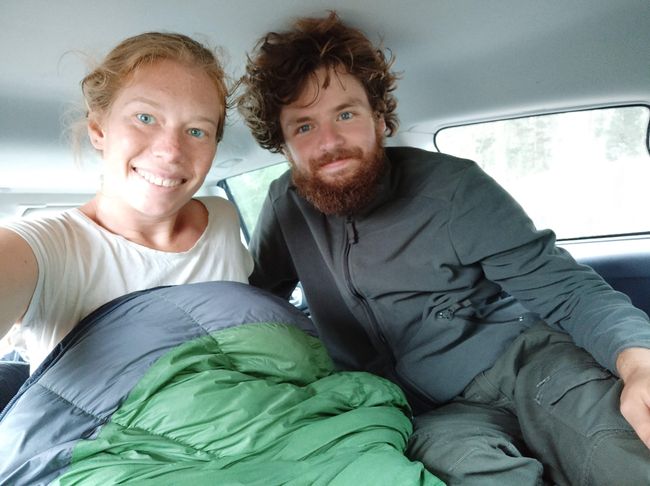
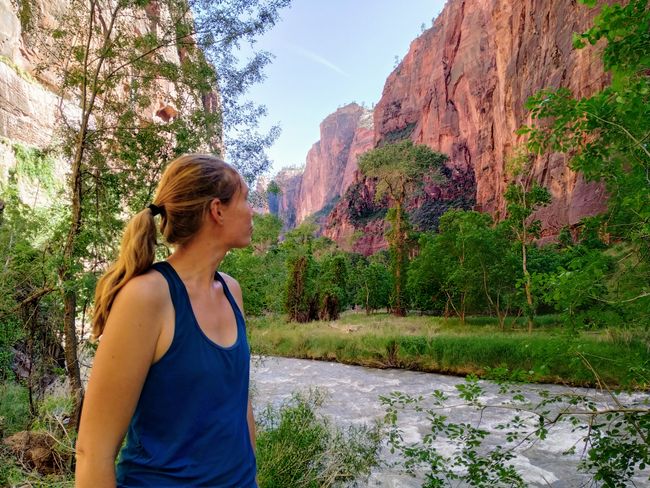
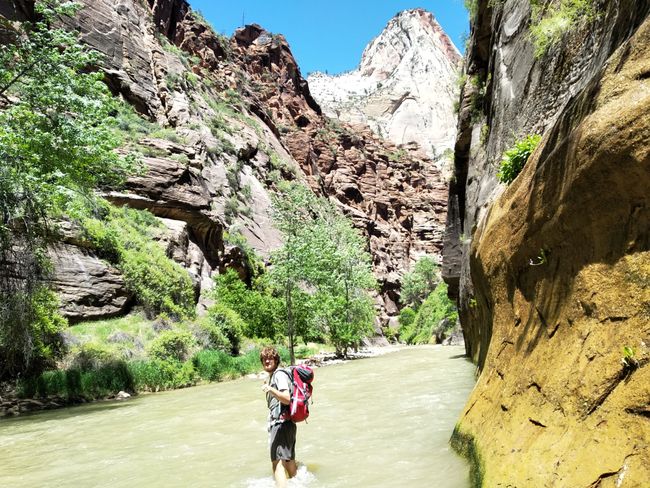
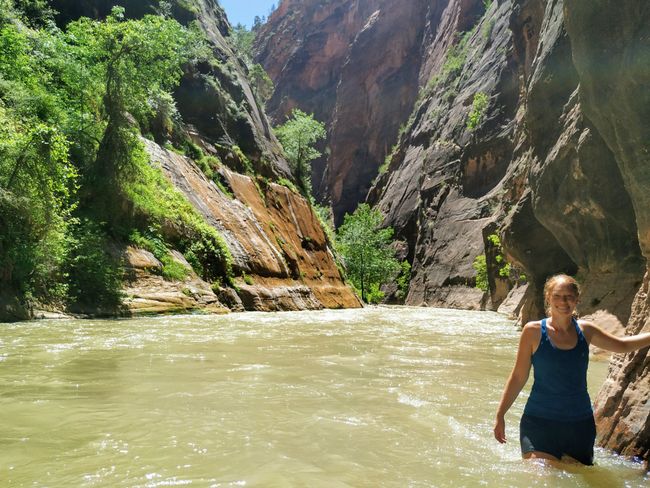
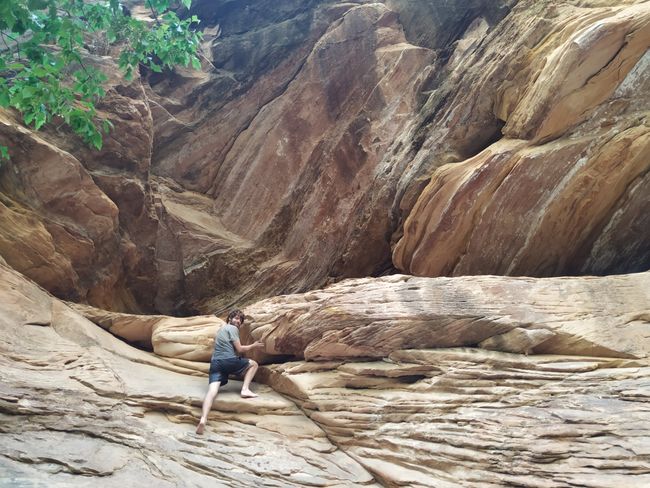
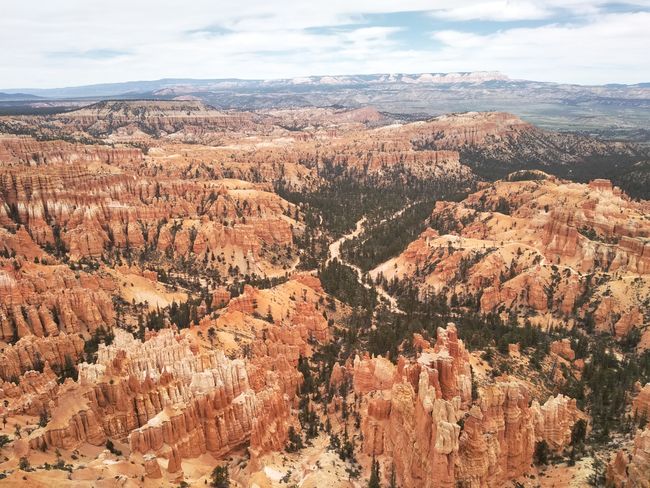
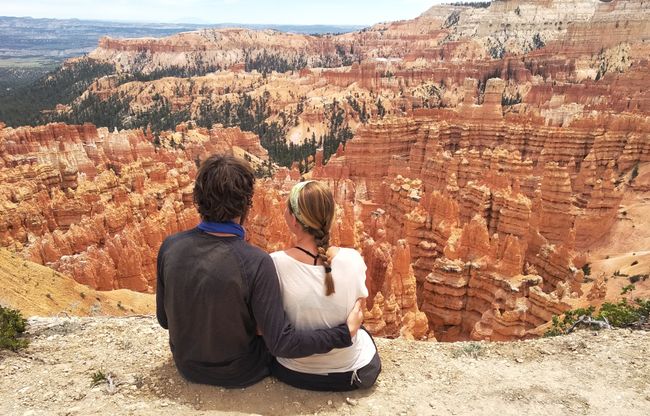
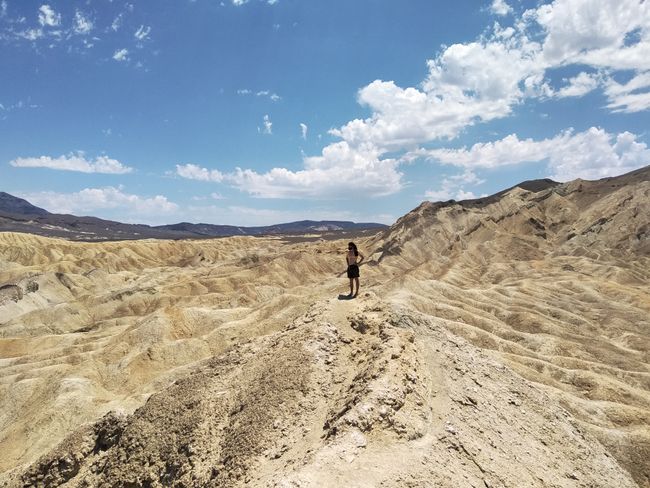
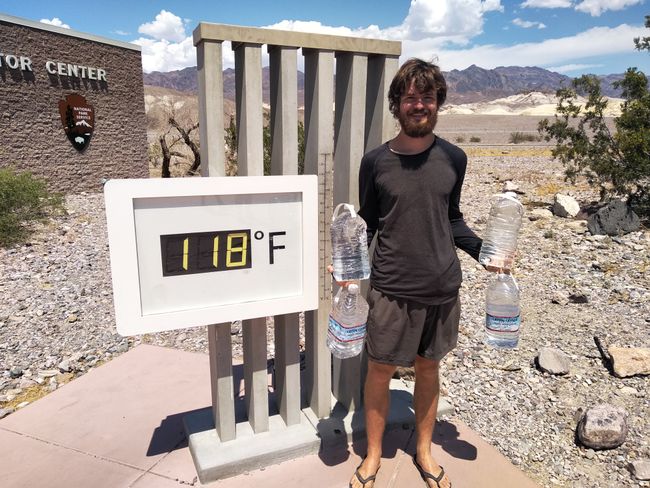
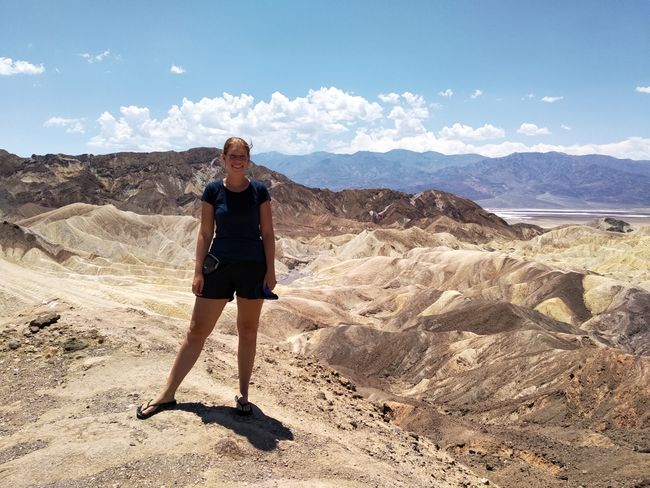
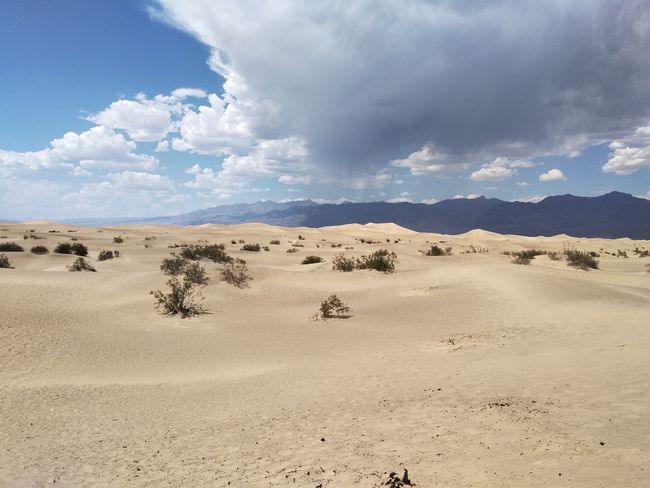
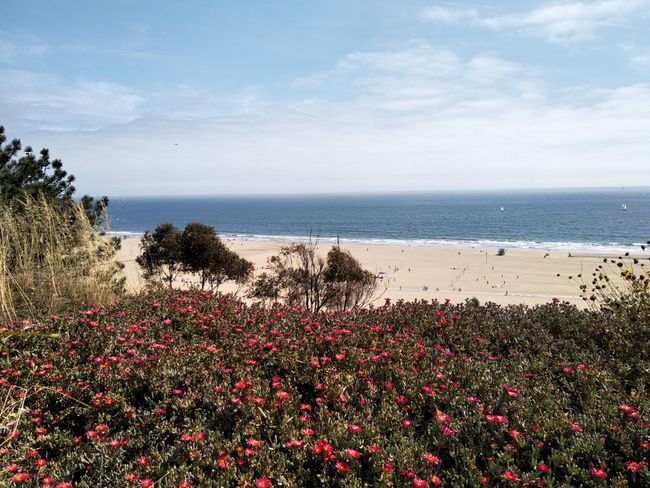
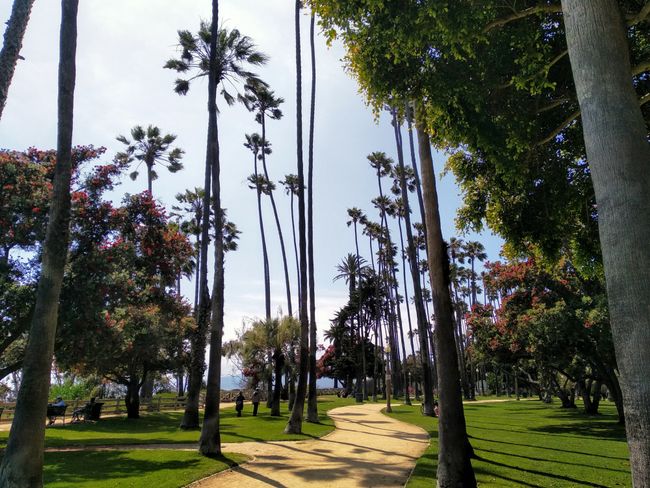
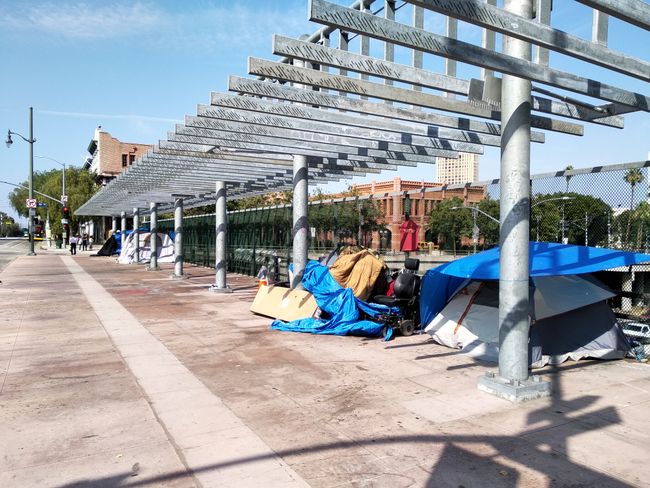
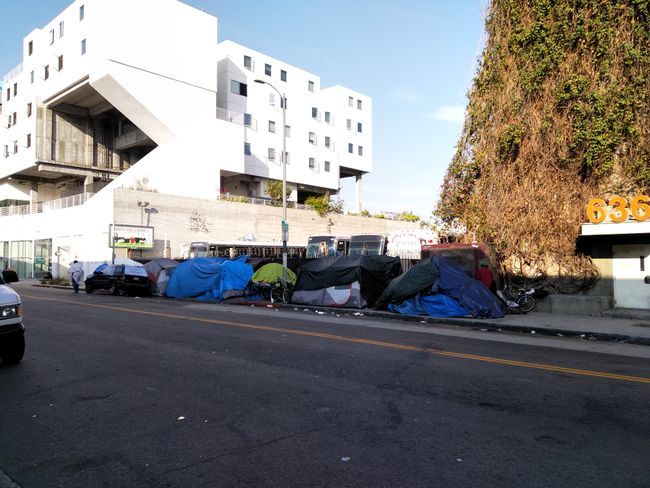
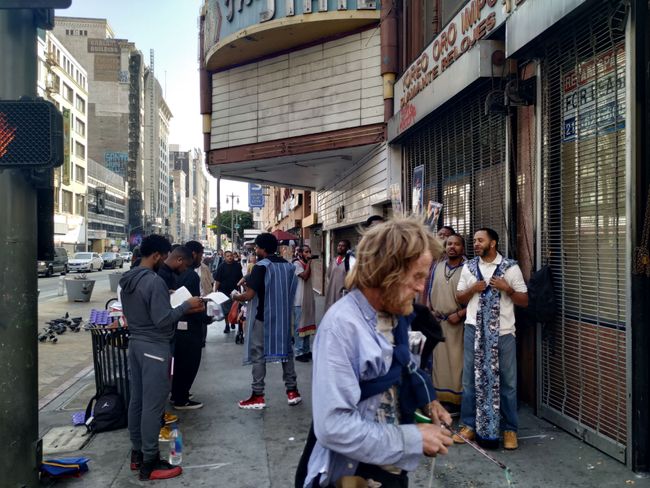
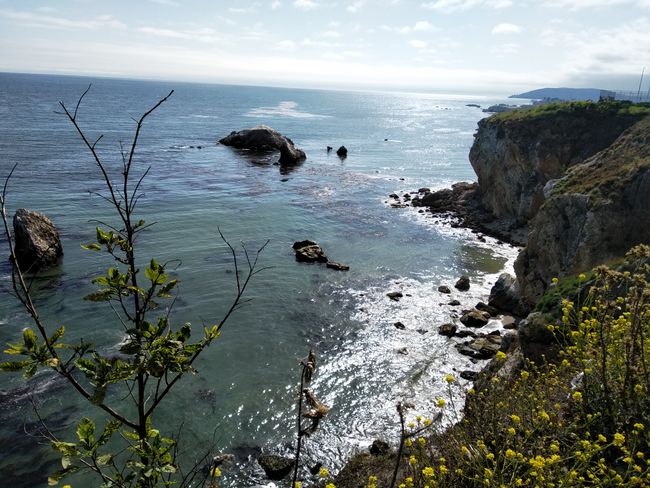
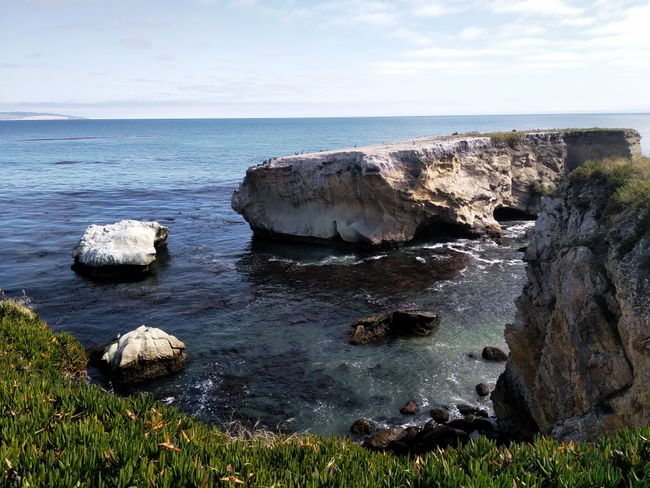
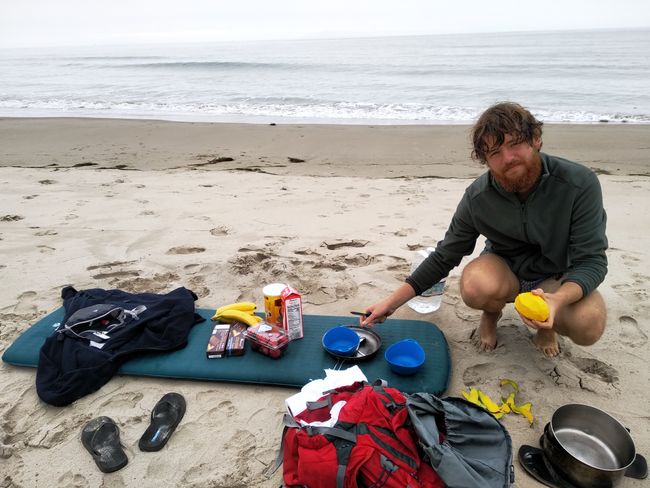
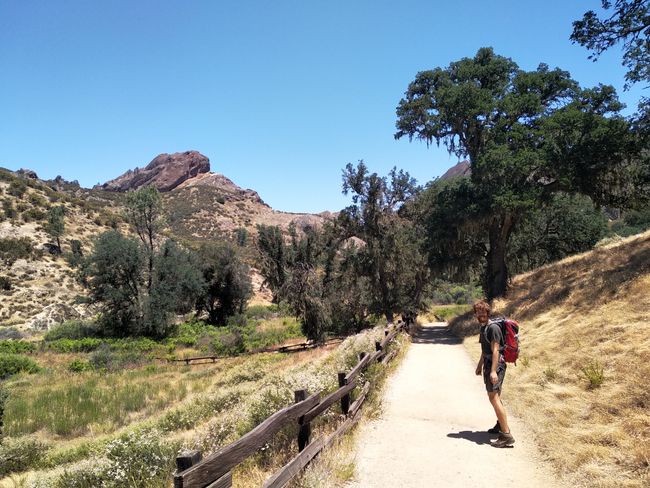
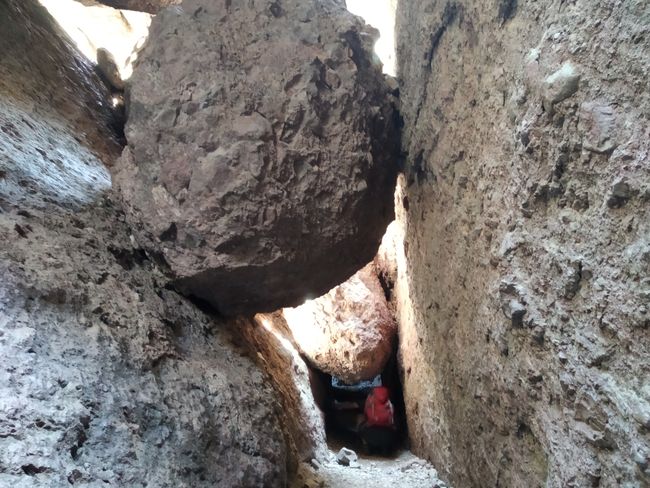
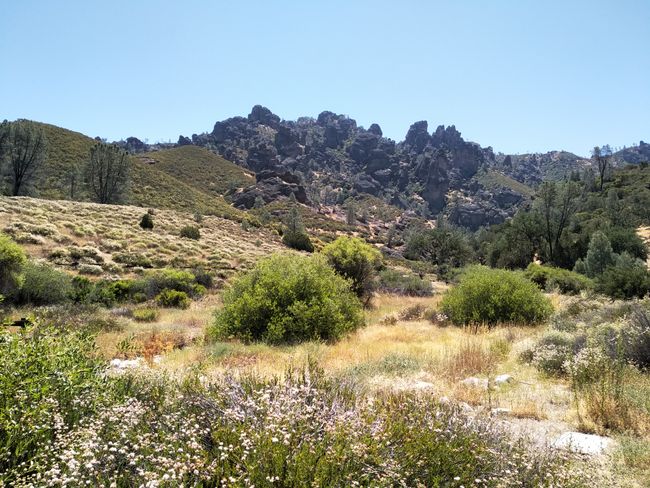
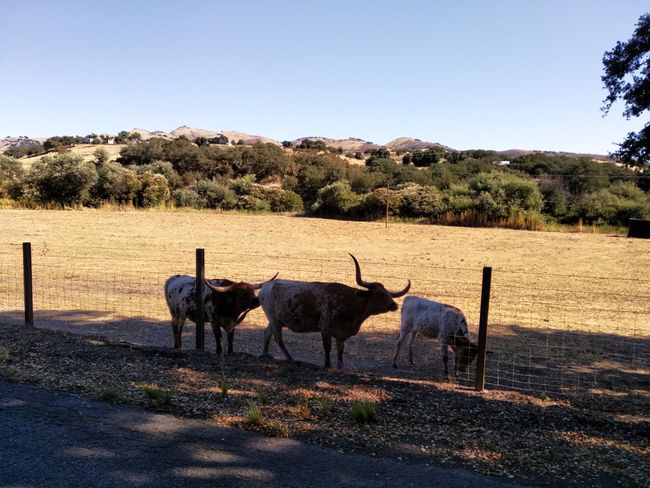
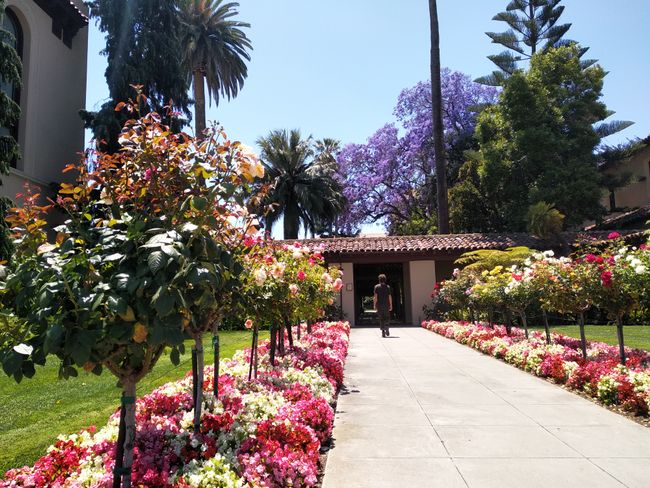
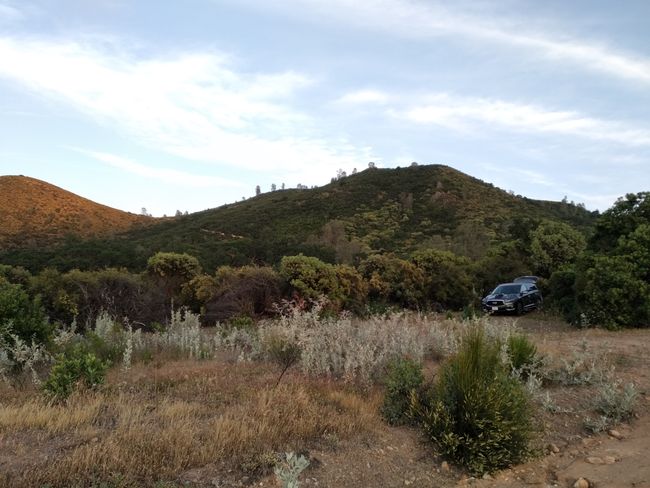
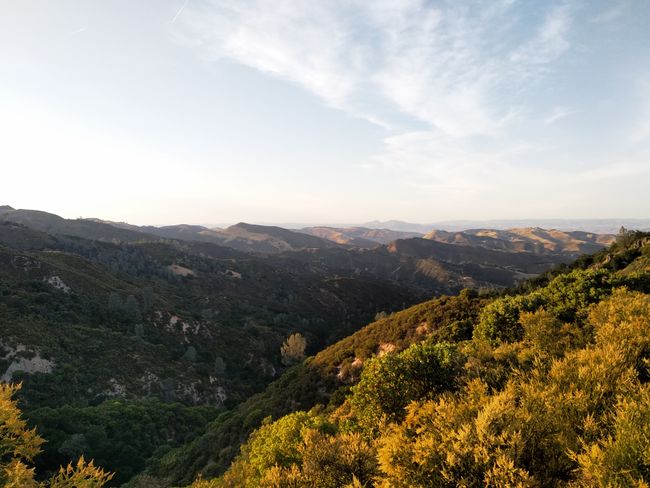
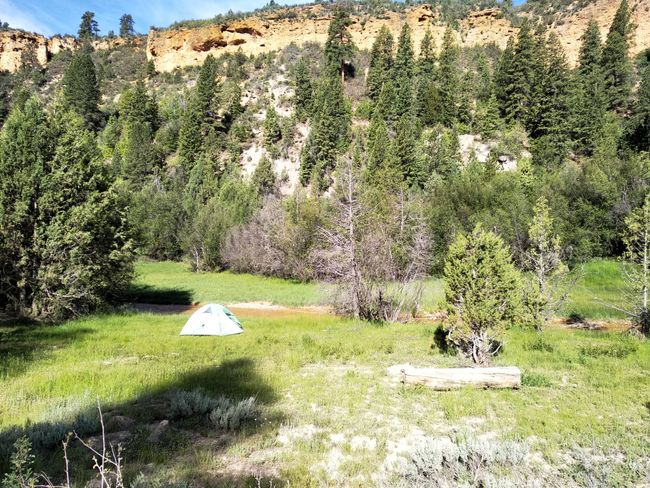
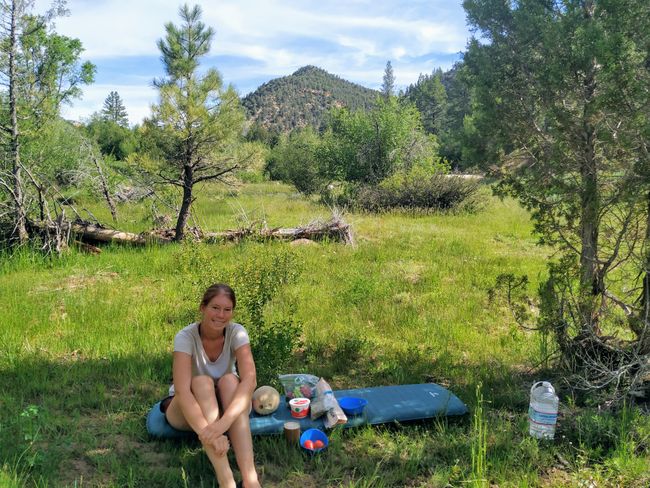
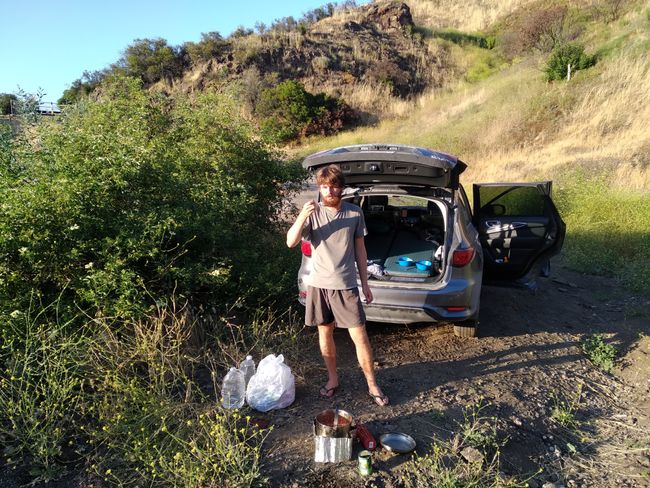
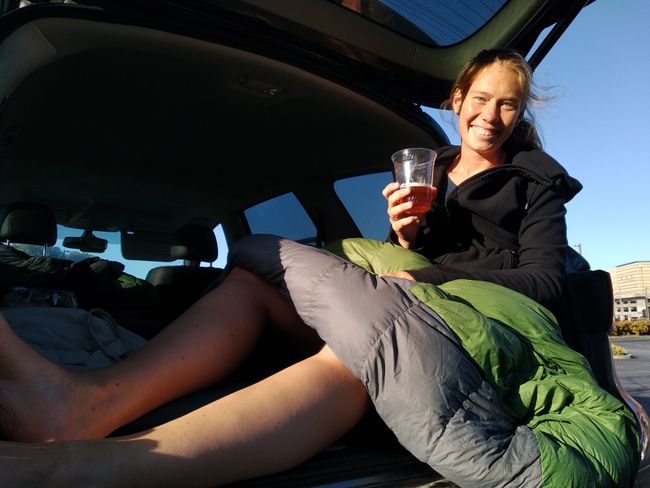
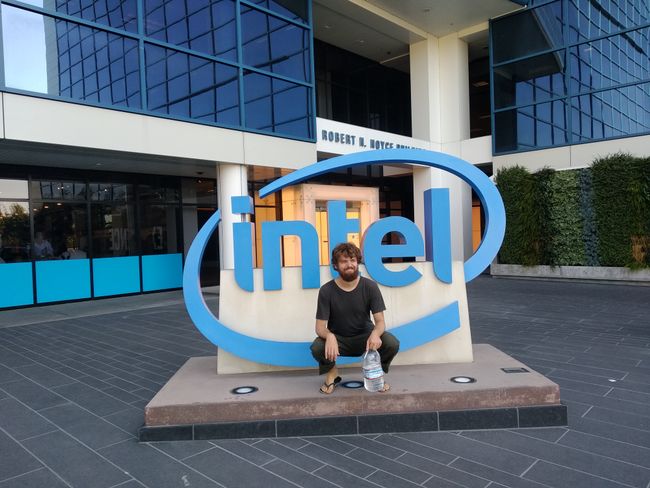
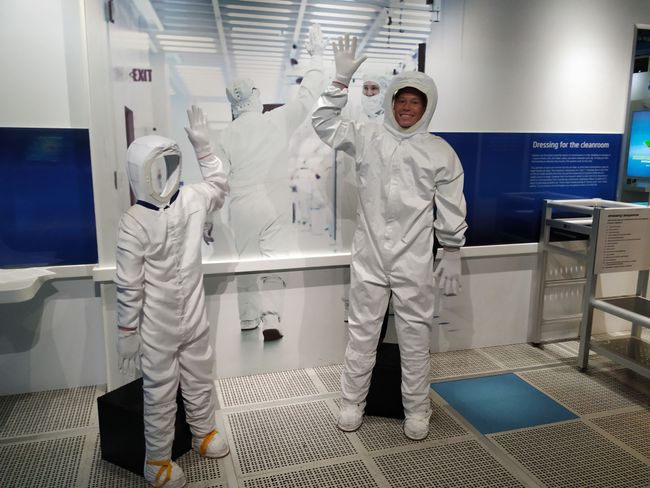
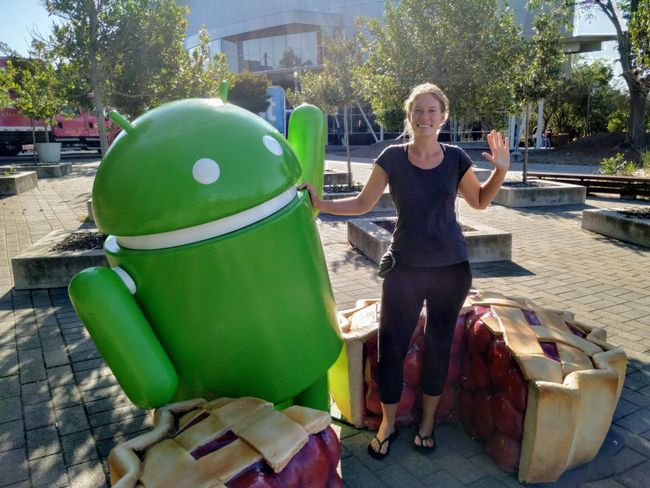
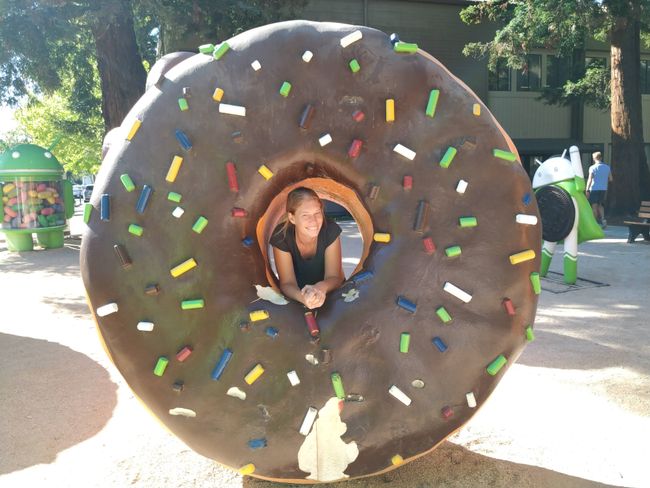
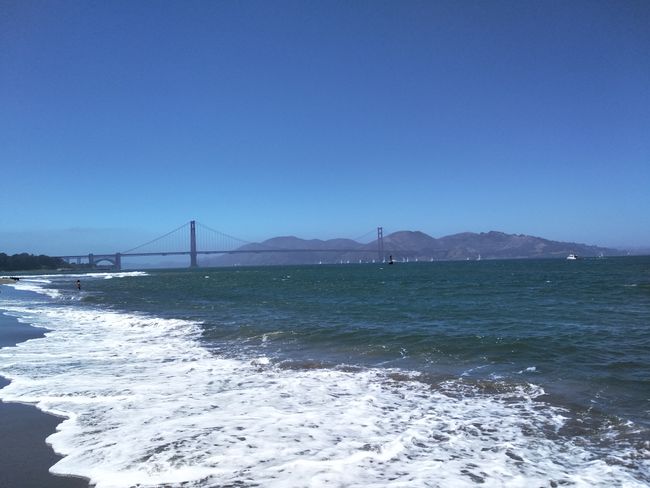
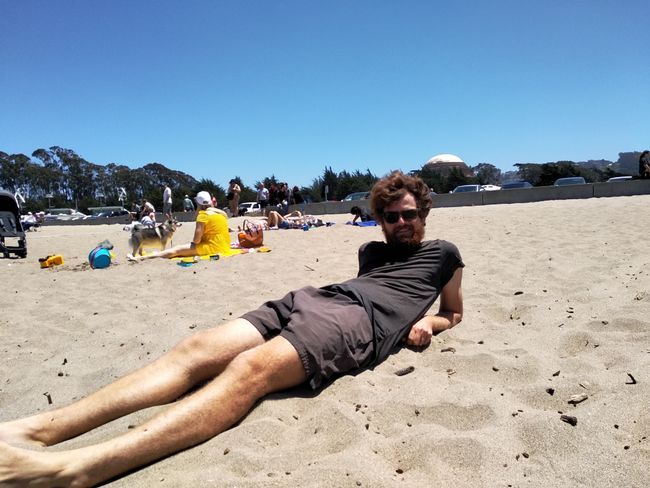
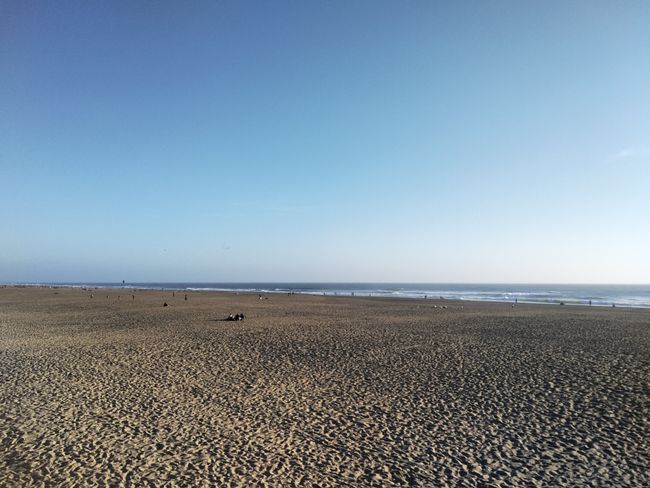
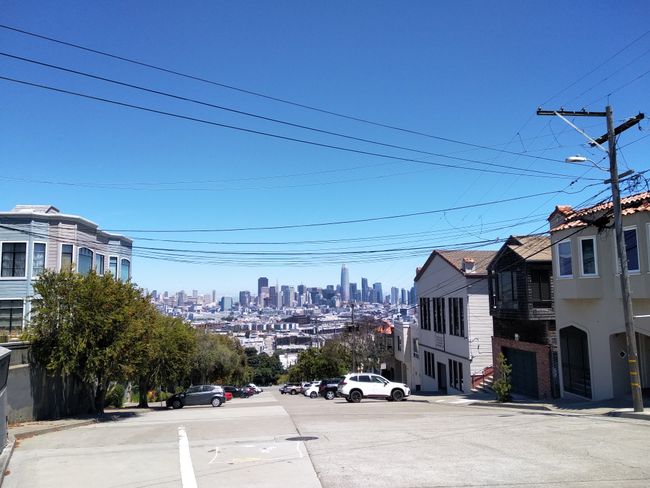
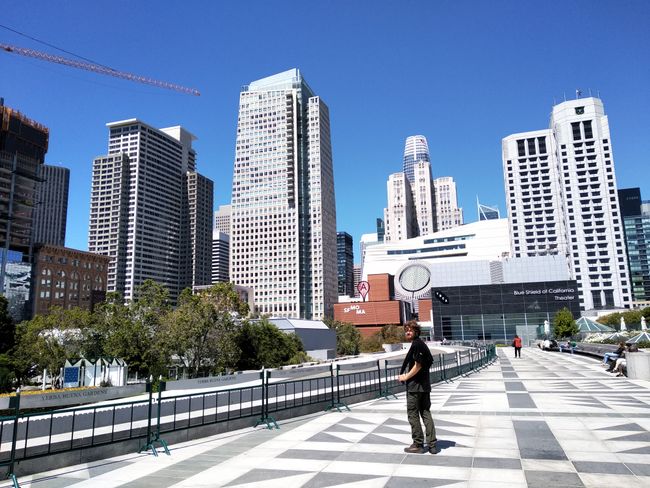
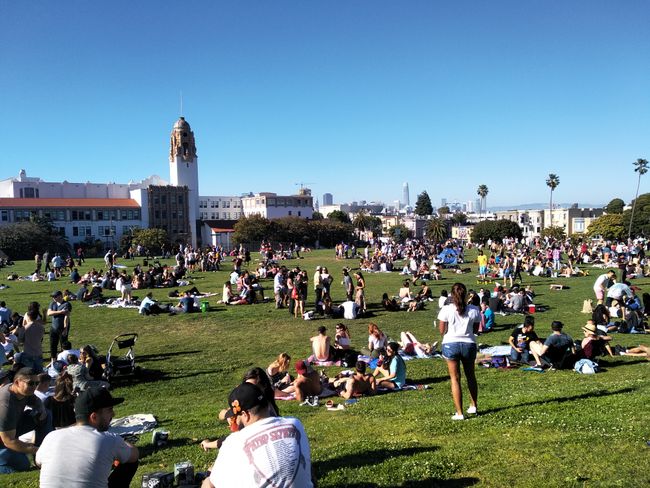
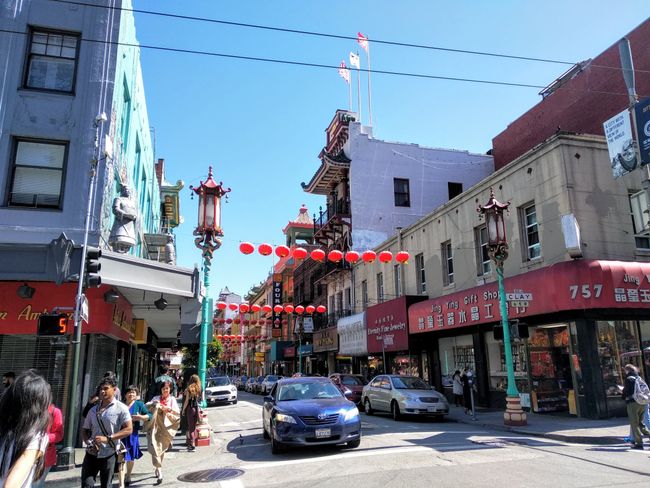
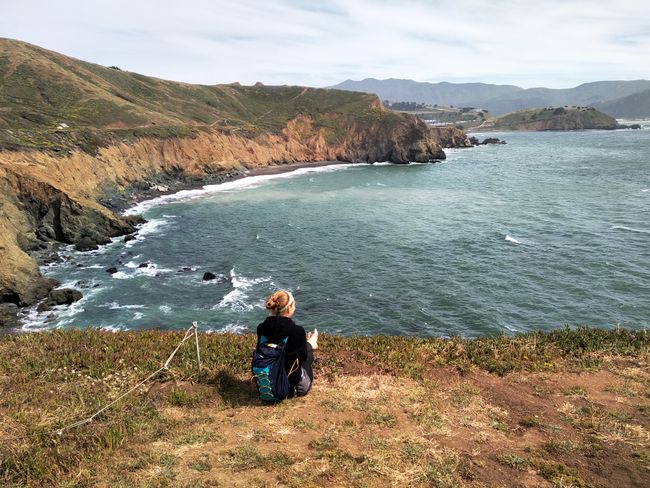
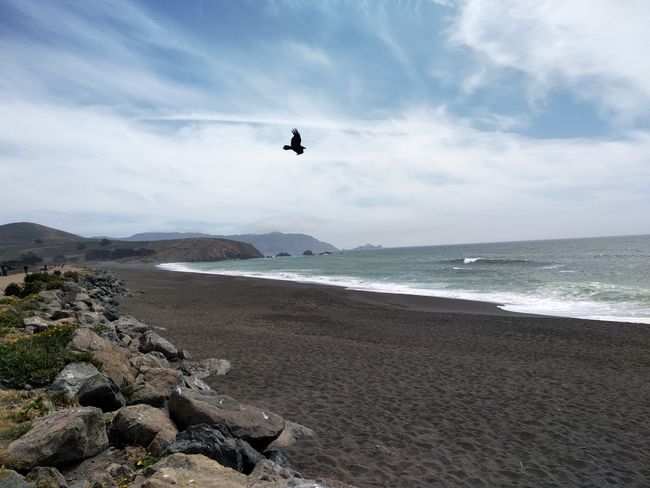
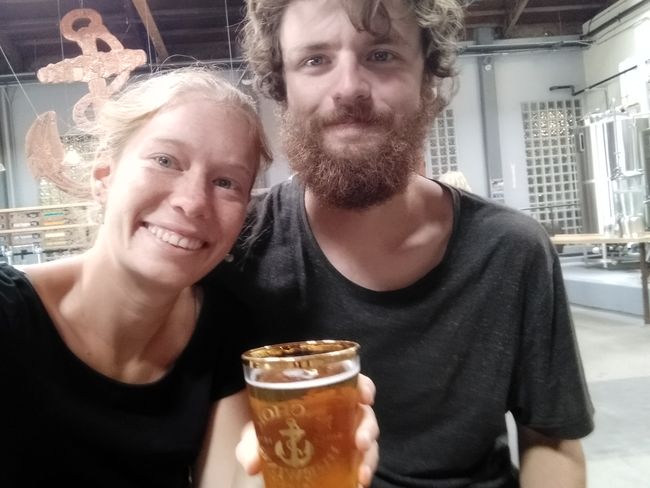
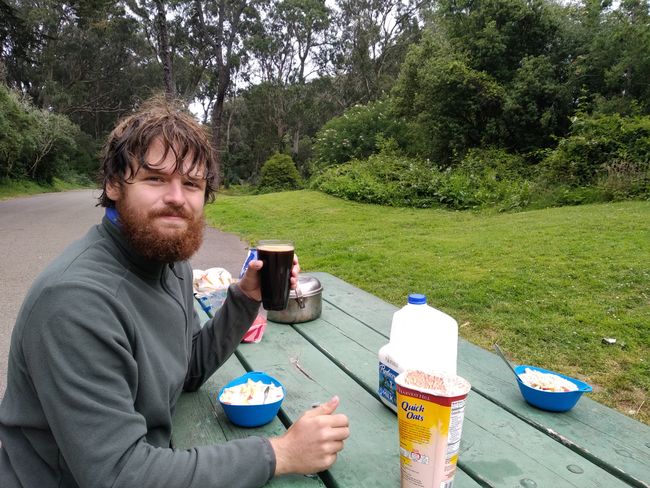
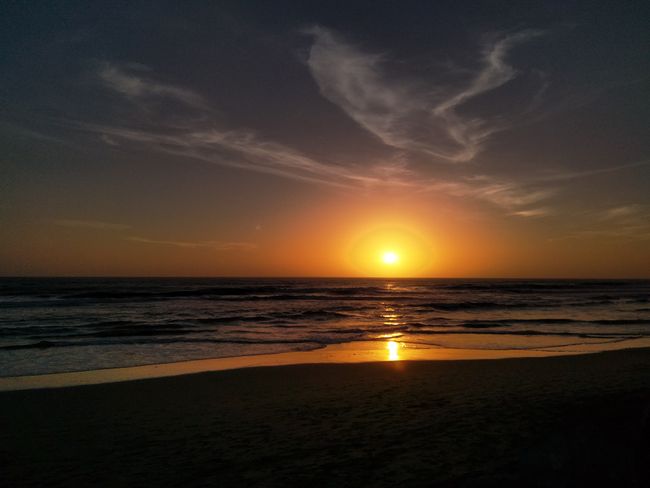
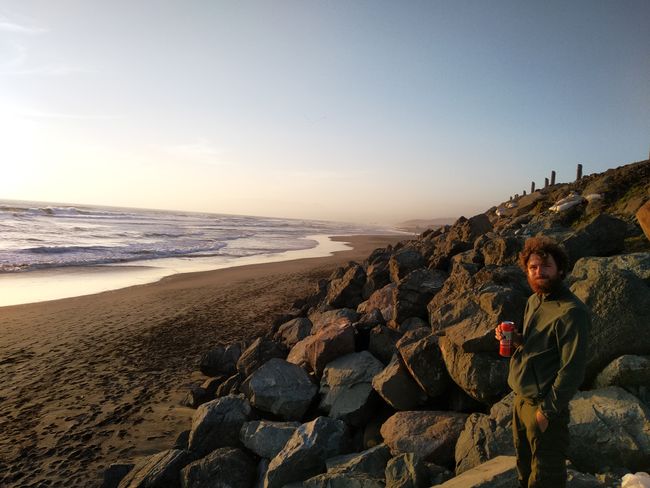
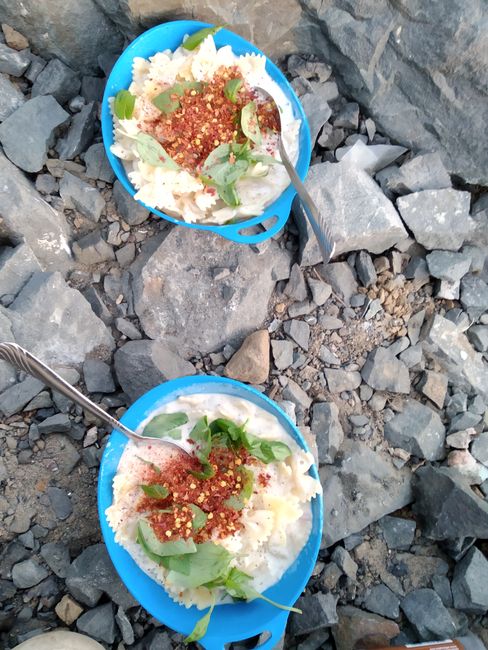
Alabapin si iwe iroyin
When we set off from Havana to Las Vegas, everything goes smoothly: if you want to get to the airport cheaply, you take the P12 line to the nearest point and then walk 2 km or take a bike taxi to the airport. Euphoric and a little tired, we arrive at the airport car rental station in Las Vegas at 11 pm. Our booked car is missing liability insurance and we are asked to pay a hefty surcharge for it. We are annoyed with the website because it promised us the insurance. We cancel the rental car and have one in prospect from another dealer in 3 days. It's now 2 am, we can't cheaply get away from the airport without a car and we don't have accommodation anyway. We set up camp at the airport and close our eyes - until we are woken up at 6 am by security.

We are exhausted, walk hungry to the nearest supermarket and eat something other than pizza (see blog entry Cuba). We book accommodation in Las Vegas for 3 days, which costs 32€, three times more expensive than our accommodations in the last 6 months, but we enjoy the western standard. When we go shopping for our dinner at the supermarket, the card reader doesn't accept our credit card. A man behind us speaks up and wants to pay for our groceries. A little bewildered, but happy, we thank him; for the man, it seems to be nothing special at all.
As expected, Las Vegas holds a small culture shock for us. Pure capitalism - there are many hotels (equivalent to casinos) in the city, many go bankrupt again after years and have to close, whereupon new ones emerge. And Americans are used to paying for everything, whether it's $15 to swim in a lake or $18 for an outdoor cinema. On the Strip in Las Vegas, a mile-long boulevard with hotels and casinos that is actually managed independently of Las Vegas, we feel a little like in Europa Park. Every hotel has its own theme, from fairy tale castles, Venice or Egypt to the Eiffel Tower in Paris. Everything glitters, is chic and there is a large casino in every hotel. For us, it's all very surreal, the focus is on having fun and spending money in a city in the middle of the desert that was able to grow rapidly thanks to a reservoir and gambling in the 1930s. We also visit the Fremont district, where the oldest casinos and hotels are located. Here you can glide over the shopping street in a zip line. Street artists ask for donations by making music on buckets, folding fern flowers, standing in the thong or 'mankini' or drawing attention to themselves with signs that say 'If you pay me a beer, I will drink it'. At the same time, you see many people who are no longer mentally fit and engage in self-talk or look very neglected and consume drugs (one time we see a person injecting heroin directly on the sidewalk). The sky is blue every day, it is extremely dry, which is pleasant for Jakob, who comes from the Amazon jungle and is used to the humidity. Miriam tolerates the heat worse - it is around 38 degrees.
Three days later we receive our rental car, a Nissan Versa, a larger car than we actually booked. The new mobility still feels very unfamiliar. We buy a gasoline cooker in an outdoor store, because gasoline can be found everywhere without problems, cooking is faster and we will be cooking outdoors a lot in the next few months. Then we 'only' have to buy the American Pass for $80 to be allowed to visit the national parks. Slowly but surely, we're running out of money.
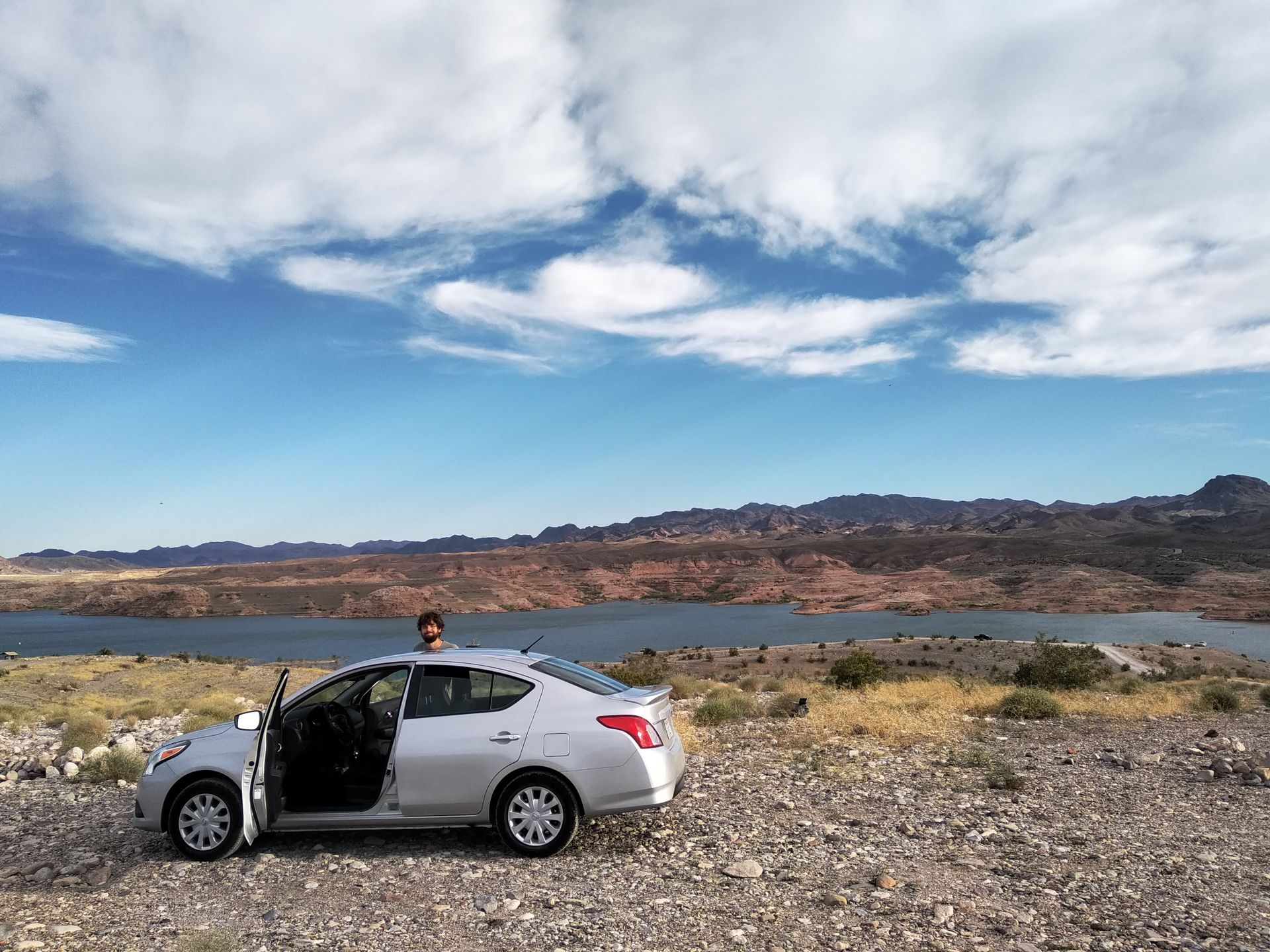
We spend the first night at Lake Mead - a reservoir in the rugged desert landscape. We swim in the water, cook on our new stove, and spend a very windy night in the tent that doesn't let us sleep much. On the second night, we move to the desert near Zion National Park, the black-red mountains impress us and we are completely alone. The night is even windier and Miriam does not sleep well again. However, the starry sky in the desert shines incredibly intensively. Overall, we will not be able to sleep very well in America. And then comes the bad news: when we wake up, we notice a flat tire on the rear wheel. In the middle of the desert and of course no internet, no cell phone network, no one far and wide, and neither of us has ever changed a car tire. You think everything would be easier with a car, but that's not always true. Now what? Just stay calm, look up the manual, get the spare tire out of the trunk, and step by step we manage to change the tire. Shockingly simple. In addition to bicycle tires, we can now also handle car tires ;) !

We drive carefully to the nearest workshop of our car rental, it's Sunday and they tell us to come back tomorrow. We set up our tent in the middle of a residential area behind a tree and the next morning we excitedly go back to the car rental. The staff is very helpful, no one asks anything because we shouldn't have driven off-road, which of course we did, and we get a new car right away. And an SUV Nissan Infinity, which we can even sleep in. Lucky break! When we start driving in the big car, we can hardly believe the luxury, we feel flashy with the huge car and all its gimmicks. But here in America, almost everyone drives an SUV or an off-road vehicle - for good reason: remote roads are often not particularly good and covered with sharp stones or often only gravel roads. We set up camp by a small river. There are many other wild campers around us. With our camping mats, we chill in the car and read, cook on the gasoline cooker, and swim in the river. It's almost too easy and there's a lack of physical exertion. While we were often in contact with the locals in Cuba or South America, here again a polite western distance is maintained - as campers, we wave and greet each other very friendlily, which is nice but almost like an apology not to have to talk to each other. However, many people also approach us, for example in the supermarket or on the bus, to exchange a few sentences. We have very nice conversations, but when things get personal or a bit uncomfortable, many people quickly leave. That's okay for us too, we enjoy the peace, our togetherness, and not being approached at every street corner.
The landscape is fantastic - we continue to Zion National Park in Utah. The free parking lot is already full after 9 am and the whole city wants to charge $20 for parking, which is why the city has placed parking pillars on private property against the will of the homeowners. We don't see the point in that, so we drive out of the city until we can park for free and hitchhike back. A friendly tourist guide takes us in his car, in which the tour visitors are already sitting. Zion National Park is impressive in terms of landscape. The wide paths, the bus that drives into the park every 5 minutes, and the bus driver who tells funny stories and informs the passengers, almost like in an amusement park. We decide to do the river hike through a canyon. Quite exciting, because the path is actually closed due to high water and the water in the river is high and cold. wearing hiking boots and full gear, we trudge into the river, Jakob carries our cell phones in the backpack on top and we pray that he won't be carried away by the current. We only make slow progress, have to change sides of the river often to pass too deep places and rapids, the water reaches us up to the hips and sometimes up to the chest, and occasionally we have to warm up on small elevations. But we leave the tourist crowds behind. The canyon with its red to yellow shades now belongs to us alone and adrenaline pumps through our veins. We find a great cave made of yellow sandstone, where we take a break for food and decide to turn back when the sun disappears behind a mountain and our strength diminishes. The way back with the current is super fast, Miriam is knocked down once and she lets herself glide through the river, which she enjoys the most. However, Jakob is shocked when Miriam suddenly no longer stands behind him and appears 150 m ahead. Dripping wet and barefoot back on the hiking trail, we are scrutinized by the other visitors, but our euphoric mood carries us back to the car.
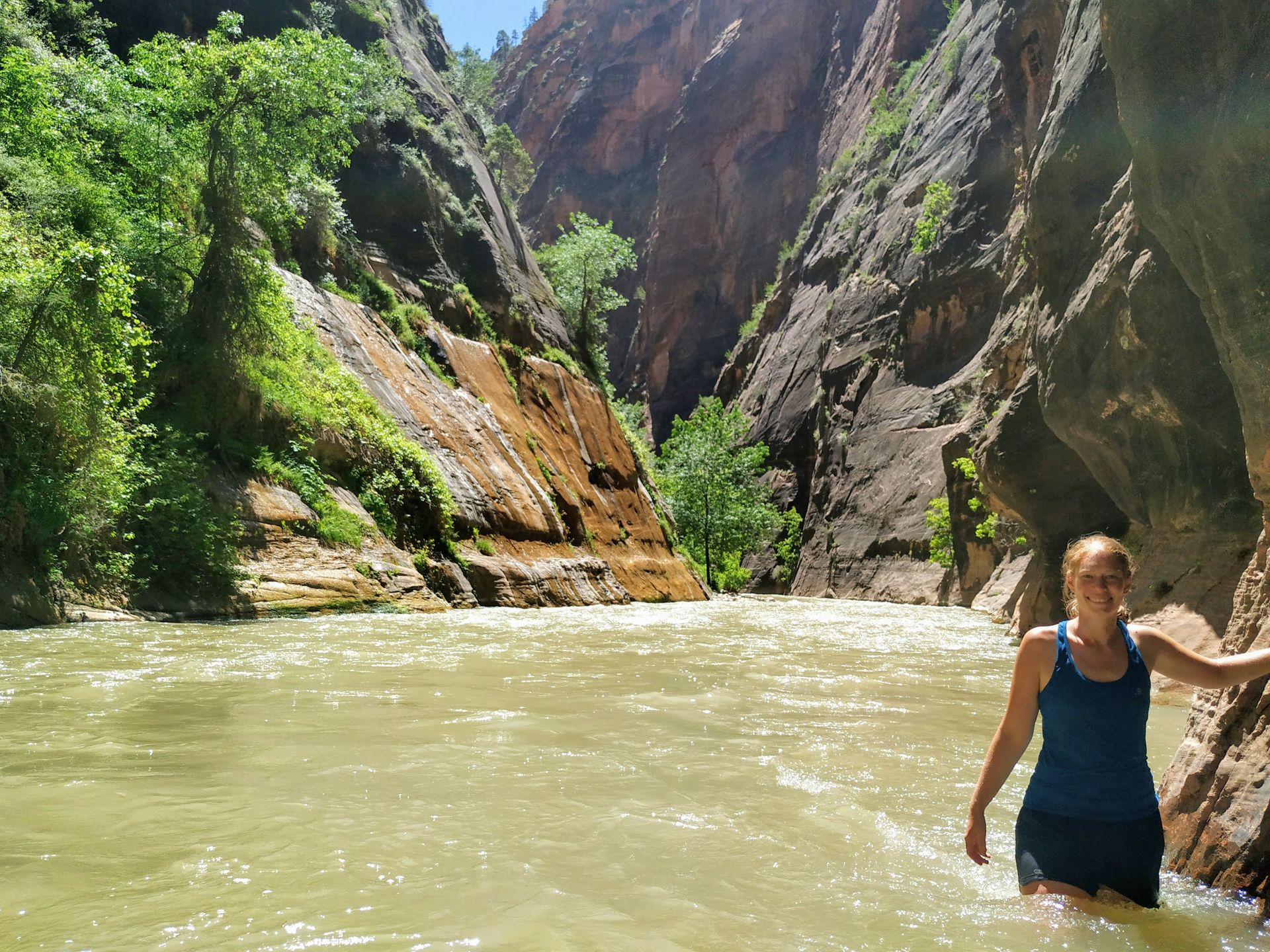
We continue to Bryce Canyon, which impresses with its red and white rock formations that stretch into the air like stalagmites. Miriam really likes it, Jakob can't quite enjoy the view because everything seems so surreal to him, especially since you can drive into the park by car and don't have to work for the view. The American lifestyle takes some getting used to. We shower at the community center or at Stanford University, where we sneak in, buy things at the 99 cent store, and sleep in Walmart parking lots, which sometimes are open 24 hours. It's hard to believe, but we really like camping among all the cars. There is water, toilets, Wi-Fi, cheap cafes, and everything you need right next door.
On the way to Los Angeles, we decide to drive through Death Valley. This is a large national park with barren, brown and hilly landscapes and is not for nothing called the Valley of Death. Not much grows here, but the simplicity, passing Steppe Runners, and the tranquility fascinate us and sometimes the colors and formations remind us of Bolivia. It is also the hottest place we have ever been, with temperatures reaching 50°C.
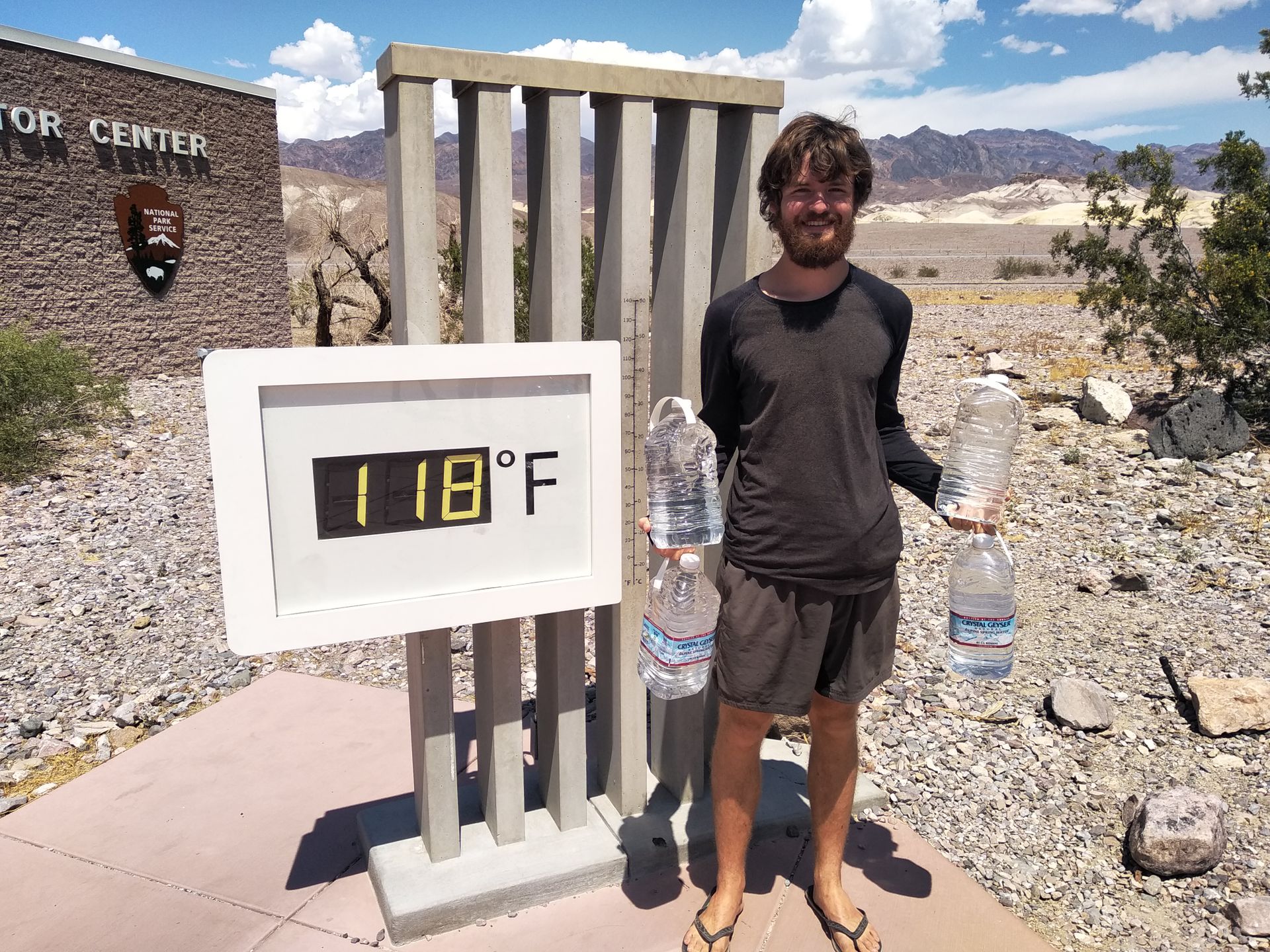
We strike up a conversation with a man at the air-conditioned visitor center, who turns out to be a Jehovah's Witness. Another American joins the conversation, he is stationed in the military in Great Britain and lets us know where he has already been and how much money you can spend on his RV and campsites. We also see many Mormons who shop in traditional costumes at Walmart or hike in Death Valley and other places - crazy America.
In Los Angeles, we notice how many homeless people live on the streets. We believe that there are significantly more people than in South America and Cuba. The poorest people there unofficially or illegally take the land, build themselves an adobe hut with a corrugated iron roof, and have a small plot - they don't own much, but they don't live on the street either. In huge cities like Los Angeles, we see many patched-up tents on sidewalks next to wide multi-lane highways. Trash is lying around and the smell near the tents is one of the most intense we have ever smelled. It smells like feces and vomit. Most homeless people seem mentally unfit, some are stoned, emaciated, and neglected, especially in the notorious skid row district of LA. We feel very clearly the gap between the rich and the poor and how deep one can sink in the American system. Vive la revolution. In downtown, we count significantly fewer white people, almost only hear Spanish, and feel a bit transported back to South America with the street food stalls. The beach in Los Angeles is kilometers long, wide, clean, and full of families on Sundays. We like Santa Monica Boulevard, where you walk along cliffs adorned with palm trees and flowers. Contrast program.
On the Pacific Coast Highway, we see sea lions, pelicans, and other birds sitting on the offshore cliffs, and we find two dead sea lions on the coast of the cooler climate of San Francisco. In San Francisco, we visit the Google headquarters, which turns out to be disappointing because due to security, you are actually only allowed to visit the Google Fan Shop - great. Palo Alto in Silicon Valley has a real village feeling, everything is beautiful and tidy and peaceful. In the city center, the skyscrapers rise into the sky and create an oppressive feeling. In the evening, we get into a conversation with a homeless man who waves to us a little crazily from a piece of nature behind a parking lot. Jakob walks by and asks what's going on and he says he just wanted to say 'hello'. At the same time, he needs pegs for a tent on whose packaging with a felt pen it says 'FOR FREE'. We want to lend him ours. He tells us that he has been homeless for 10 years since he was fired and that he doesn't mind. In the morning after getting up, he consumes speed and marijuana - he also smells a bit strong. He owns a rickety bike and wants to get donuts for us with it. Jakob offers to watch his tent, he is grateful, but says he should not put himself in danger if one of the other homeless people in the park keeps an eye on it. After a while, he comes back with chicken nuggets and fries that he fished out of the trash at McDonald's. We decline because we are vegetarians. So food is not a problem for him: the fast food places around the corner throw away a lot of partially still warm food, and he is never hungry. As it gets dark, the nice man gets a little paranoid, looks around startled again and again and can't stand the quiet squeaking noises of the car tires. He becomes erratic and suddenly says that he is on probation because he hit someone over the head with a bottle because the person looked at him weird. It is obviously time to return to the car, Jakob prefers to take the pegs with him again, as sorry as he is, and we look for another place for the night.
Overall, San Francisco is very beautiful and has a high quality of life due to the cooler climate, the long beach, and the many trees, and there really are a lot of Chinese people in Chinatown. There is a colorful gay neighborhood with extravagant bars and restaurants, many parks where people enjoy craft beer in the evening sun, the Golden Gate Bridge is often shrouded in mist, and on the west coast, waves are ridden, while on the east coast, ships are pulled in the harbor. Large and green parks line the city, where bicycles and now also electric scooters and electric skateboards serve as means of transportation.
The USA was exciting, thrilling, beautiful, and BIG - from the highways to the cities to the XXL soft-drink containers to the vastness of the deserts and steppes. We can't really classify the 3 weeks yet because not everything can be put under one hat - the USA is too diverse and there are too many contrasts. Difficult for Europeans to grasp the culture.
Alabapin si iwe iroyin
Idahun
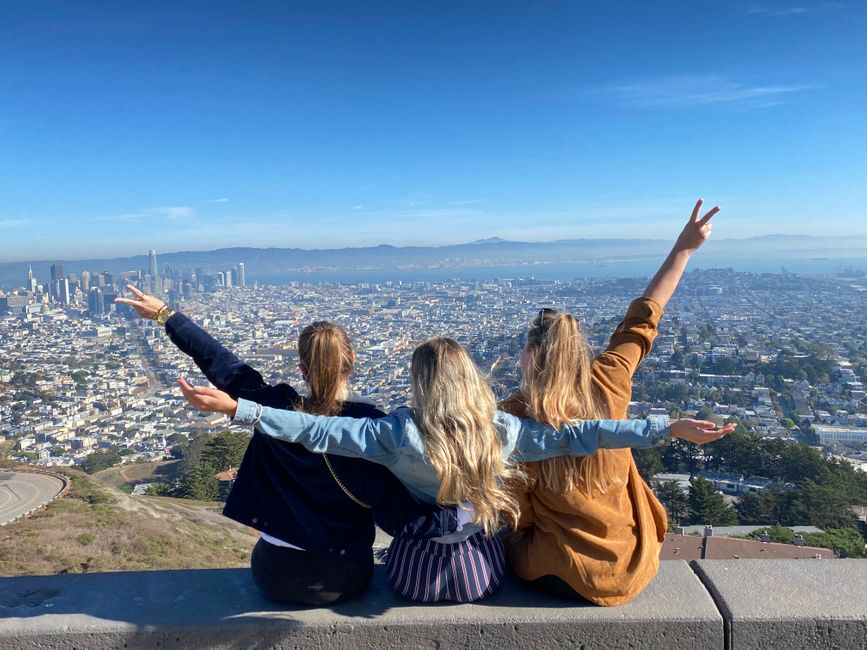
Awọn ijabọ irin-ajo USA
